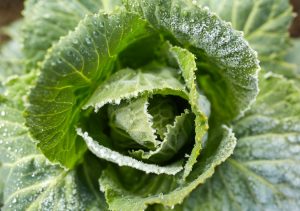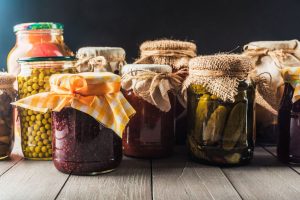
Winter on a small farm probably draws to mind images of snow covered fields and chilly afternoons spent sipping coffee in front of the woodstove. However for the modern farmer that idyllic picture is far from the truth. On today’s small, sustainable farms the work is never done!
For many, making a year round living requires creativity. It can be tricky for farmers who aren’t growing in the far south to keep produce available year round. For most farms this task is accomplished in a couple different ways. First, many farmers will choose to grow good storage crops, produce that will keep well and can be marketed throughout the winter months. Some farmers continue growing crops through the use of season extenders. Lastly, some farmers choose to make their produce into value added products that store well.
Storage Crops
Pumpkins, winter squashes, cabbage, root crops, onions, garlic, potatoes, and even certain varieties of apples and pears are all examples of storage crops. Even though these crops are grown in the summer and stored for winter use they still require attention during the colder months.
Different types of produce have their own set of optimum storage conditions. Plants like beets and carrots store best in cool damp temperatures like a root cellar while winter squashes and onions keep best in warm dry areas. Storage crops also needs consistent monitoring. The phrase, “one bad apple spoils the bunch” is true for all types of produce.
Season Extension
It may seem odd but today even most northern farms have some plants growing throughout the winter. Through the use hoop houses, low tunnels, and cold frames there’s a variety of of hardy plants that can be grown all winter depepending on your climate. Hardy greens like spinach, arugula, pak choi, and kale can be grown under protection in chilly temperatures. In some areas it’s also possible to over winter brassicas like cabbage, cauliflower, broccoli, and brussells sprouts. All of these methods require careful monitoring to ensure plants are kept within acceptable temperature ranges.

Value Added Products
Value added products are essentially just a farm’s produce that’s been proccessed in some way. Goat cheese, blueberry jam, and pickles are great examples. For many farms this is a way to not only get a little more money out of their products but a little more time to sell it. Fresh goat milk, blueberries, and cucumbers all keep for a relatively short time while cheese, jam, and pickles can be kept for weeks or months. These products are well worth their price tags because they mean more work and sometimes expensive certifications for farmers.
Planning for the Next Season
On top of all this, farmers begin planning next year’s summer crops fairly early in the winter. Each year sustainable farmers consider things like cover crops, crop rotation, and selecting the best plant varieties for their area. At The FruitGuys Community Fund, we support farms that value heirloom and open pollinated seed varieties. We believe in using those seeds that have been and can be handed down from generation to generation. These seeds keep our food sources diverse and acclimate to particular climate, pest, and disease pressures.




